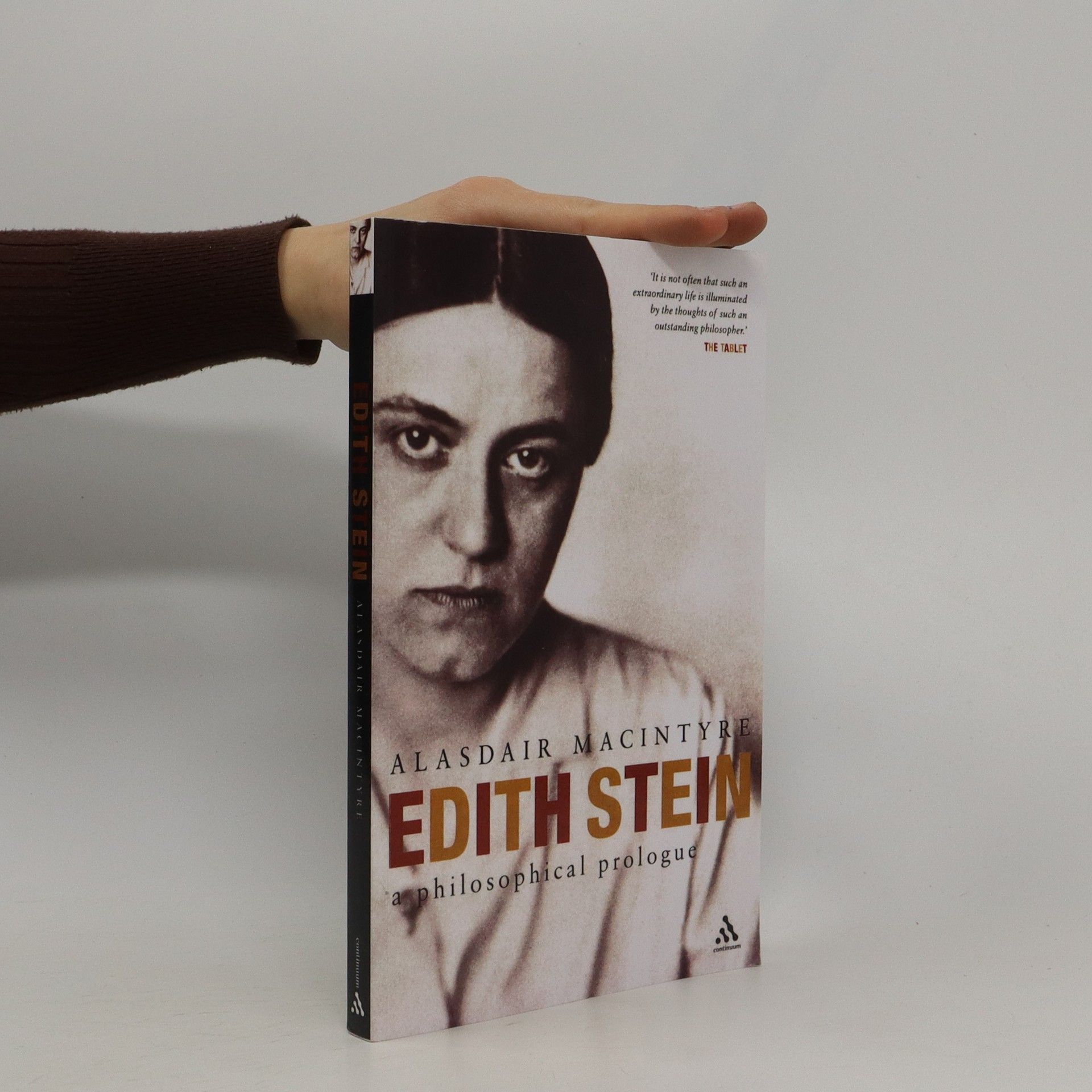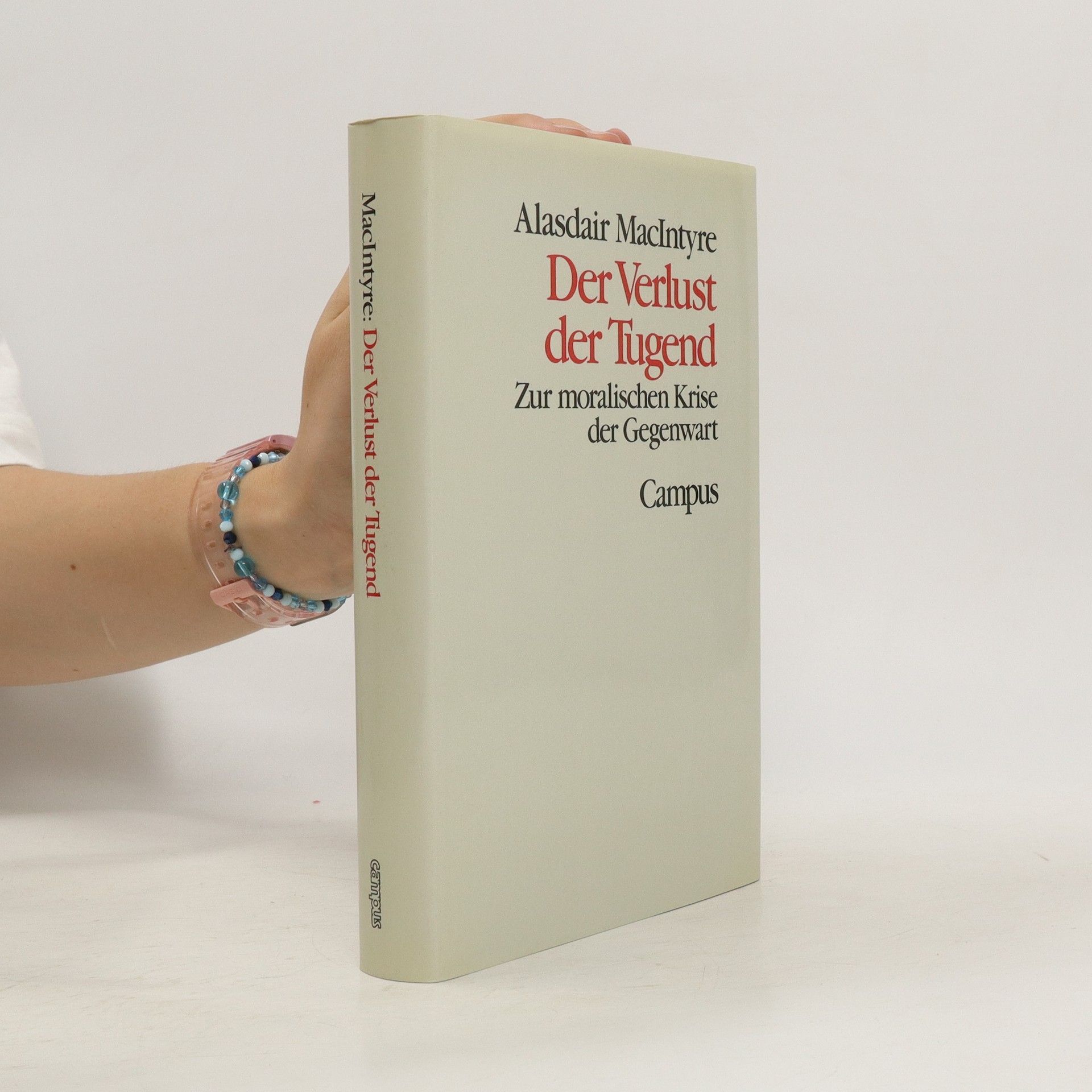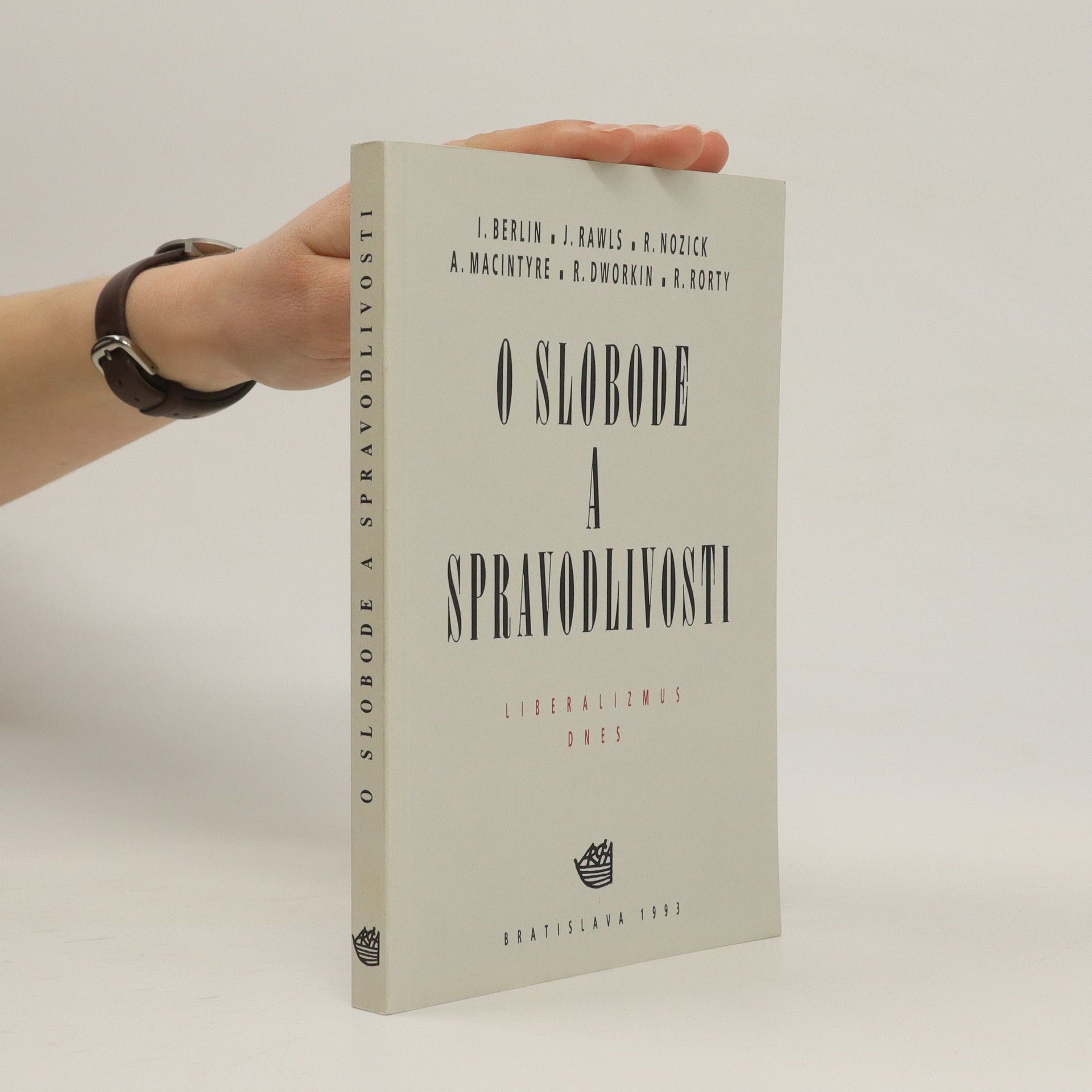O slobode a spravodlivosti
- 256 stránok
- 9 hodin čítania
Zborník filozofov hlásiacich sa k liberalizmu.
Alasdair Chalmers MacIntyre je popredný filozof známy primárne svojim prínosom k morálnej a politickej filozofii, ale aj svojou prácou v oblasti dejín filozofie a teológie. Je hlavným výskumným profesorom filozofie na University of Notre Dame. Jeho dielo sa zameriava na hlbšie pochopenie etických tradícií.







Zborník filozofov hlásiacich sa k liberalizmu.
Alasdair MacIntyre ist einer der innovativsten und zugleich populärsten Philosophen der Gegenwart. Im Zentrum seiner zeitkritischen Moralphilosophie steht die Frage, wie wir heute leben sollen. In seinem ebenso brillanten wie Aufsehen erregenden Hauptwerk Verlust der Tugen« (1981) deutet er die Aporien gegenwärtiger Diskussionen über Moral als Ausdruck einer katastrophalen Krise. Die Unfähigkeit unserer Zeit, zentrale moralische Fragen (wie Abtreibung oder Krieg) im Konsens zu lösen, führt er auf das Scheitern der Aufklärung zurück und entwirft – anknüpfend an die Antike – die Perspektive einer neuen, in lokale Gemeinschaften eingelassenen Tugendethik.
MacIntyre is one of the major British philosophers of the post-war years. He is a convert to Roman Catholicism. Edith Stein was an intellectual of considerable importance in the period between the two World Wars, also canonised as a Saint. A Jewish convert to Catholicism, she died in the gas chambers of Auschwitz. Stein's published essays focused largely on the structure of the person and a careful articulation of the essential nature of community and its basis in our nature as persons. MacIntyre looks at Stein as both a theologian and philosopher, and reveals many of the fundamental issues in both disciplines.
This volume explores the common ground between Marxism and Christianity. It argues that Marxism shares in good measure both the content and functions of Christianity and does so because it inherits it from Christianity. It details the religious attitudes and modes of belief that appear in Marxism as it developed historically from the philosophies of Hegel and Feuerbach, and as it has been carried on by its latter-day interpreters from Rosa Luxemberg and Trotsky to Kautsky and Lukacs. It sets out to show that Marxism, no less than Christianity, is subject to the historical relativity that affects all ideologies. This new edition has been updated to take account of the collapse of Communism in the former Eastern bloc and whether Marxism, in particular, is still relevant to those who seek a changed social order today.
In this landmark work, MacIntyre returns to the 'Virtue'-based ethics of Aristotle in answer to the crisis of moral language caused by the Enlightenment.
MacIntyre explores the central philosophical, political and moral claims of modernity and argues that a proper understanding of human goods requires a rejection of these claims. This significant book by a distinguished philosopher will interest a wide readership in moral and political philosophy.
Alasdair MacIntyre sprzeciwia się stanowiskom akcentującym istnienie radykalnej, jakościowej różnicy między kondycją zwierzęcą i ludzką. Zwraca uwagę na różne formy wspólnotowego życia, które odgrywają istotną rolę w wielogłosie współczesnych dyskusji w dziedzinie filozofii moralności, a także w kształtowaniu i utrzymywaniu naszych zdolności do prowadzenia dobrego życia.